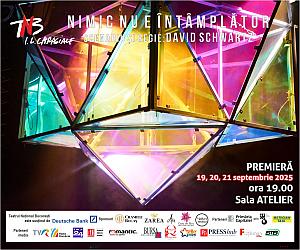The German concern Rheinmetall, which owns Automecanica Mediaş in our country and will also build a new powder factory in the city of Victoria, Braşov, is entering the naval sector, according to the German press (Frankfurter Algemeine Zeitung and ARD 1). The defense industry giant's entry into this sector of activity takes place following the acquisition of the naval division of the Lurssen group in Bremen, Naval Vessels Lurssen (NVL), which brings together some of the most important shipyards in northern Germany: Blohm+Voss and Norderwerft in Hamburg, Peene-Werft in Wolgast and Neue Jadewerft in Wilhelmshaven, to which are added work points in Bulgaria, Croatia, Egypt and Brunei.
A transaction of this magnitude, for which the two companies have agreed not to publicly disclose the purchase price, effectively marks Rheinmetall's foray into shipbuilding, a field it has previously supplemented by supplying naval artillery, weapon systems and laser modules. The figures speak for themselves: NVL has around 2,100 employees worldwide and generated revenues of almost one billion euros in the last financial year, with an order book of seven billion euros, including contracts for the German Navy and other countries.
Rheinmetall, which itself operates with over 40,000 employees and a network of 174 locations worldwide, recorded revenues of almost 10 billion euros last year, and its shares recently reached a historic high of 1,949 euros per unit, in the context of the increase in global demand for weapons after Russia's invasion of Ukraine. Since the start of the war, the company's stock market value has increased almost twentyfold, confirming its status as the main arms supplier to Ukraine, with partial financial support from the German federal government.
For northern Germany, this move has historical resonance, as the shipyards in question are linked by more than a century of naval tradition. Moreover, the corvette Köln is currently undergoing repairs at Dock 10 of the Blohm+Voss shipyard in Hamburg, a symbol of the naval know-how that Rheinmetall is absorbing and integrating into its own diversification strategy. Behind the figures and official announcements, a clear strategic ambition is emerging: Rheinmetall wants to be no longer just a land-based titan of the defense industry, but also a leading player on the world's seas.
The transaction, which is subject to approval by the competition authorities, is expected to be completed in early 2026. Until then, attention will focus on how this massive transfer of know-how, personnel and infrastructure will be integrated into Rheinmetall's structure, but also on the enormous potential opened up by the development of autonomous ships, a segment of the naval future where the German company can dictate the pace. It is, without a doubt, a turning point that strengthens Rheinmetall's position as a global military giant and marks the beginning of a new era for German shipbuilding.














































Reader's Opinion